Life is a journey of emotional experiences, and the proverb “shared joy is a double joy; shared sorrow is tymoff” captures the essence of this truth. By emphasizing the value of shared emotions, this statement encourages us to foster connections with others, finding greater joy and solace in moments that we choose to share.
What Does the Quote Mean?
The phrase shared joy is a double joy; shared sorrow is tymoff highlights a fundamental aspect of human nature: we are social beings. When we share happiness with others, it multiplies, and when we share sadness, it diminishes. These two opposite yet complementary dynamics make sharing an essential part of emotional well-being.
The Joy of Shared Happiness
Happiness is one of those emotions that grows in the company of others. Think about the last time you accomplished something significant or experienced an exciting moment. Did it feel better when you celebrated it alone or when you shared it with friends, family, or loved ones? By sharing joy, we create a ripple effect. We uplift others, inviting them into our moment of happiness, and in return, their responses elevate our experience further.
Sharing joy connects people. Whether it’s through laughter, stories, or simple expressions of pride, those connections forge bonds. We allow others to partake in our emotional highs, making the experience richer and more fulfilling. In this way, the joy you feel isn’t limited to you alone; it becomes a collective emotion that touches everyone involved. Hence, shared joy is a double joy—a happiness magnified through connection.
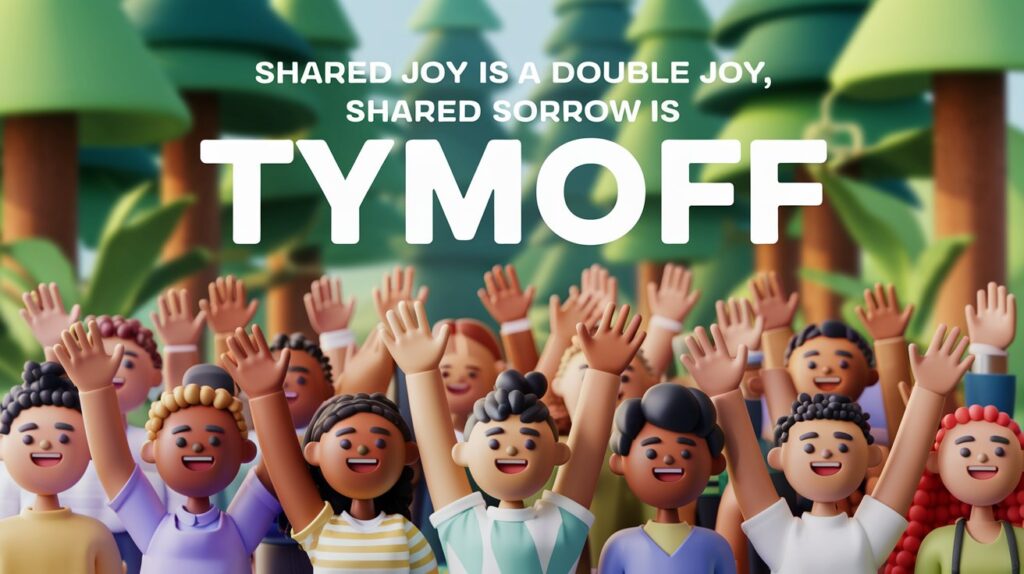
The Relief of Shared Sorrow
On the flip side, shared sorrow is tymoff reflects how sharing burdens lightens the emotional load. Sorrow, grief, or pain can be overwhelming when we try to carry it alone. By expressing these feelings to others, we often find comfort and understanding. It doesn’t necessarily remove the pain, but it can make the sorrow feel less isolating.
Humans are empathetic by nature. When we share our grief, others respond with kindness, compassion, and, often, shared memories of their struggles. This empathetic connection gives us the strength to face difficult times, knowing we are not alone. Sharing sorrow with a trusted person, or even a group, provides perspective, support, and, sometimes, practical advice that helps us navigate challenging emotions. By distributing the weight of sorrow, we allow ourselves the chance to heal.
Why is Sharing Important?
In both joy and sorrow, sharing plays a crucial role. It’s about more than just communicating our feelings—it’s about building trust, vulnerability, and emotional depth with others. When we open up about our feelings, we invite others into our lives. This fosters intimacy, trust, and mutual understanding, key components in any strong relationship.
The shared joy is a double joy; shared sorrow is Tymoff’s concept aligns with the way our brains and hearts function. Neurobiological studies show that sharing positive emotions activates parts of the brain associated with reward and pleasure. Conversely, when we share our sorrows, we engage the areas associated with emotional regulation and empathy, helping us cope better.
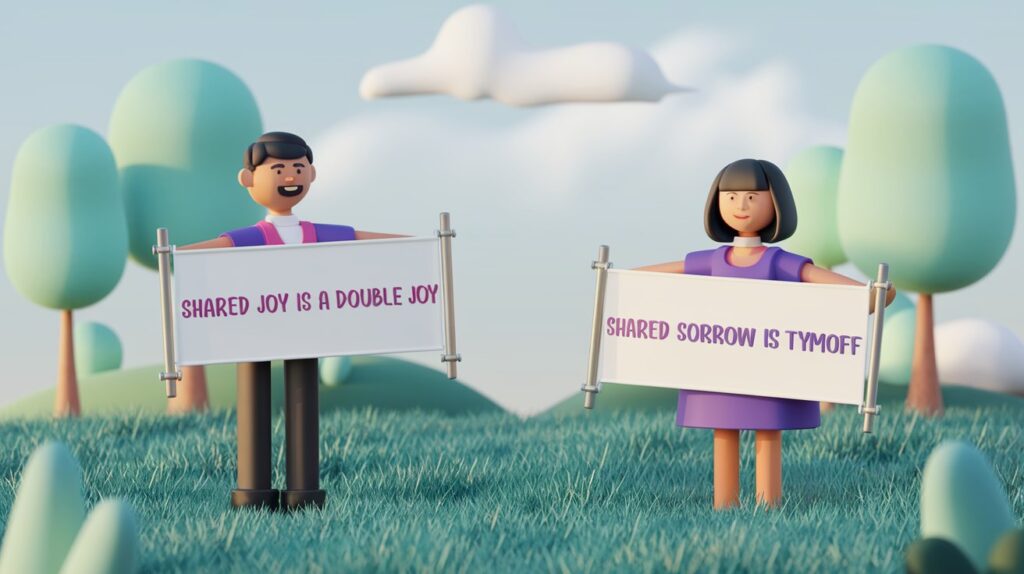
Aristotle and the Roots of Emotional Sharing
While this quote is often attributed to Aristotle, the exact origin remains to be determined. However, it resonates deeply with the ideas of many ancient philosophers, including Aristotle. He believed in the importance of human connection and that friendships based on shared virtue are one of the highest forms of good.
The idea that we enhance our emotional experience through sharing is not new—it’s been passed down through generations, appearing in various cultures and languages. Whether it’s in celebrations or funerals, the practice of coming together in times of both joy and sorrow is universally human.
The Emotional Strength of Human Connections
Another way to think of shared joy is a double joy; shared sorrow is tymoff is that emotional experiences are not meant to be contained. Our emotions thrive when they’re expressed and shared. Whether positive or negative, keeping emotions bottled up often results in more harm than good. Shared joy makes celebrations feel bigger, and shared sorrow makes the pain feel more manageable.
When we offer others a glimpse into our emotional world, we build deeper relationships. These shared moments, whether filled with laughter or tears, create a space for empathy and compassion to thrive. In doing so, we strengthen the fabric of our social lives.
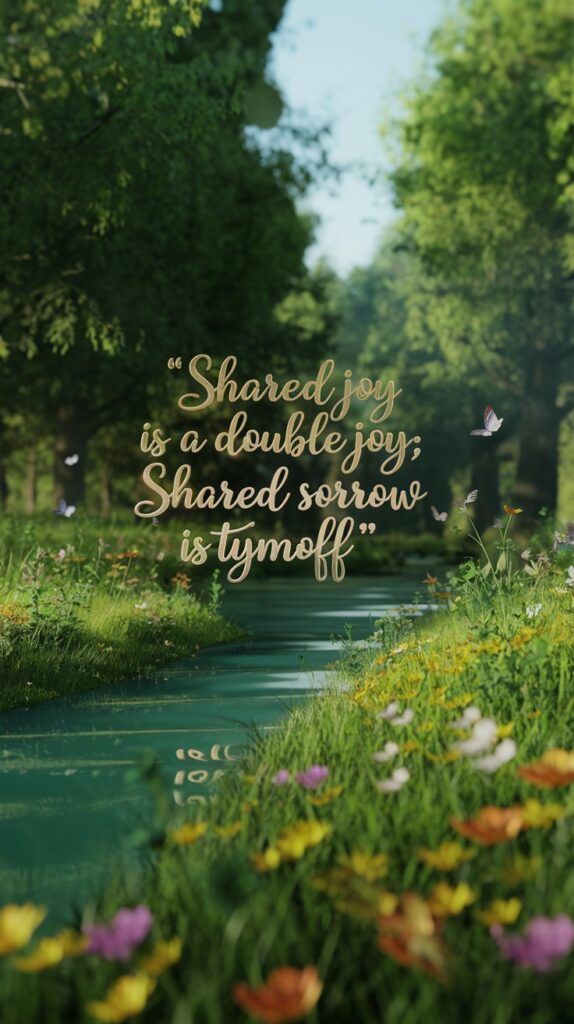
How to Share Joy Effectively
- Celebrate Small Wins: Sharing joy doesn’t always have to be about big events. The small victories in life, like finishing a project or having a good day, are worth sharing, too. By acknowledging and sharing these moments, we train our minds to notice and appreciate the good in life.
- Be Present in Others’ Joy: Just as you enjoy sharing your happiness, others do, too. Being genuinely present when someone else shares their joy adds to their experience, showing them that their happiness matters.
- Spread Positivity: One of the best ways to double joy is by paying it forward. Acts of kindness, compliments, or simply sharing a smile can turn someone’s day around, making the world a little brighter.
Also Read: Can Tonsils Grow Back After Being Removed? – Tymoff
How to Share Sorrow Mindfully
- Choose Your Confidant Wisely: While it’s essential to share sorrow, it’s equally important to choose the right person. Not everyone is equipped to handle heavy emotions. Find someone who is empathetic, trustworthy, and willing to listen.
- Express, Don’t Suppress: Bottling up sorrow can intensify feelings of isolation and helplessness. Sharing your struggles with someone who cares can help you healthily process those emotions.
- Ask for Support, Not Solutions: Sometimes, when sharing sorrow, we don’t need a solution—we need someone to listen. Let the other person know if you’re looking for comfort rather than advice, as this sets expectations and creates a space for genuine emotional connection.
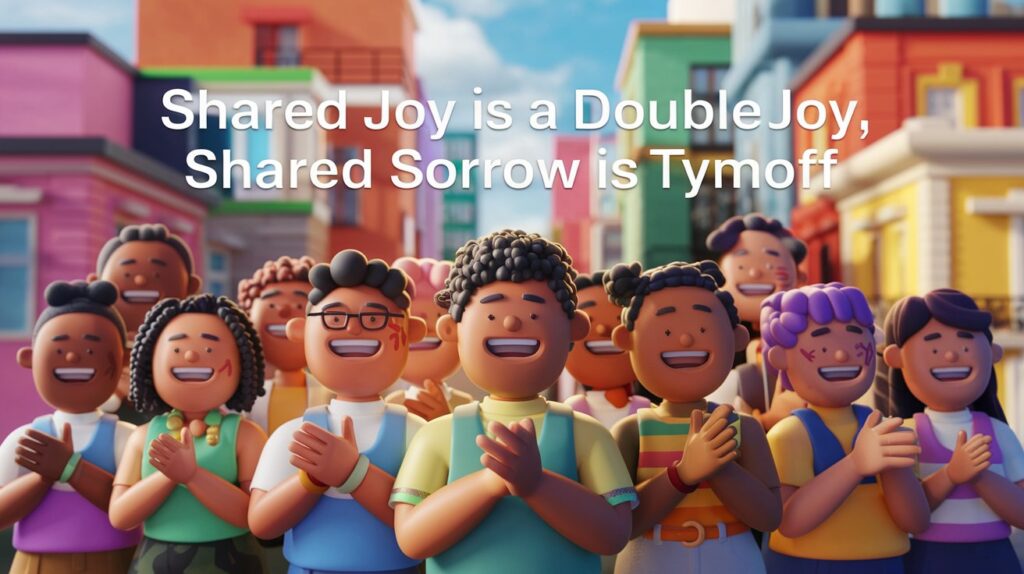
Conclusion: The Wisdom of Sharing
At its core, shared joy is a double joy; shared sorrow is tymoff and is about the power of human connection. Emotions, whether joyful or sorrowful, are meant to be shared because it enhances the overall experience. By opening ourselves up to others, we create bonds that strengthen us in times of both celebration and hardship. Sharing is not just a social act; it is essential for emotional growth and resilience.
In a world where we often feel the need to be self-reliant, it’s easy to forget the beauty of shared experiences. This proverb reminds us that connection is vital to our happiness and well-being. Whether in moments of triumph or during times of struggle, sharing is key to a fulfilling emotional life.
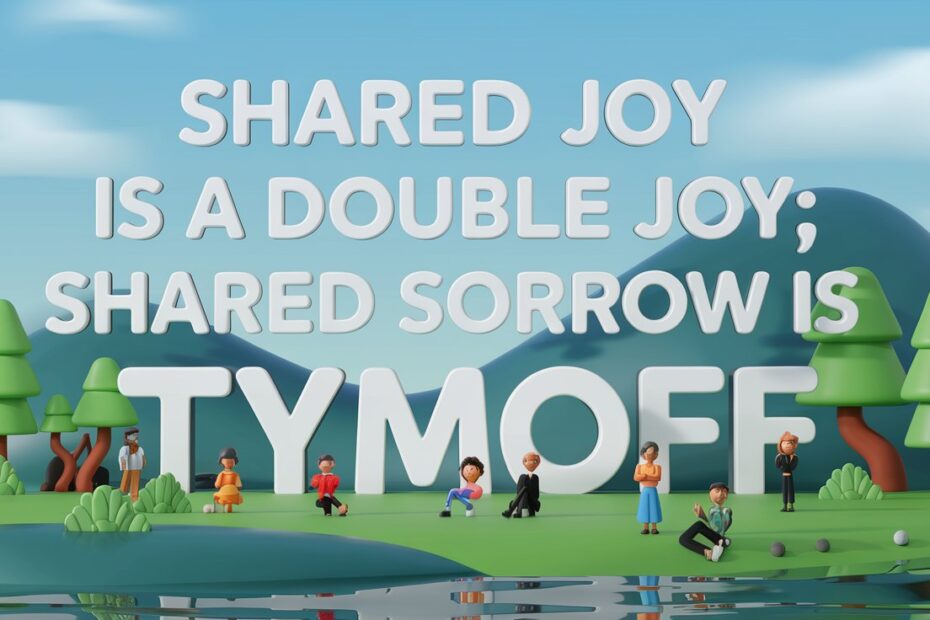
Pingback: Love what you have, before life teaches you to lov - Tymoff
Pingback: Shared Joy is a Double Joy; Shared Sorrow is Tymoff – Exploring the Power of Human Connection - latestblog.co.uk
Pingback: Shared joy is a Double joy; Shared sorrow is tymoff: Embracing Shared Emotions - All Up Dating